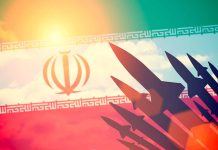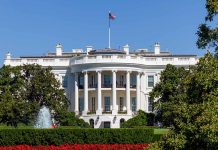
The U.S. blacklisting strategy confronts global security challenges but risks destabilizing international economic relationships in the process.
At a Glance
- The U.S. added over two dozen companies to its blacklist for supporting weapon programs in hostile nations.
- Entities from Pakistan, China, and the UAE face sanctions for violating U.S. controls.
- Sanctions are a critical U.S. foreign policy tool, but their effectiveness is questioned.
- The economic implications of U.S. sanctions on global stability remain complex and controversial.
Expansion of U.S. Blacklisting
The U.S. government has intensified its blacklisting efforts, adding over two dozen entities accused of supporting military programs in Pakistan, Iran, and Russia’s war efforts in Ukraine. This decision impacts companies primarily located in Pakistan, China, and the United Arab Emirates, with nine connected to Pakistan’s Advanced Engineering Research Organization. These actions highlight the U.S. aim to control the proliferation of military technology and influence global security dynamics.
The U.S. strategy involves wielding economic sanctions as a key tool to counter regional tensions. With support from six Chinese entities for China’s military modernization and Iran’s weapons programs, these sanctions serve to underscore a broader geopolitical challenge. Meanwhile, attempts by entities in the UAE and Egypt to evade sanctions illustrate the ongoing struggle to enforce international norms.
The Role of Sanctions in U.S. Foreign Policy
Sanctions are a critical facet of U.S. foreign policy, leveraging financial measures, export controls, and trade restrictions to curb global threats. Washington observes restraint in utilizing powerful sanctions against China, raising concerns about their perceived effectiveness. Observers note that muted responses to Chinese provocations could embolden Beijing regarding Taiwan and the South China Sea.
“We are vigilant in defending US national security from bad actors,” said Under Secretary of Commerce for Industry and Security Alan Estevez.
The strategic application of sanctions must synchronize with military and diplomatic efforts to deter aggression effectively. A clearer strategy focusing on economic statecraft with international cooperation becomes paramount. The challenge lies in building a broad coalition with allies while navigating the hesitations from the global South.
Balancing Security with Economic Stability
The U.S. holds a significant advantage in the financial sector, with the dollar’s global dominance offering leverage in sanctions deployment. Nevertheless, comprehensive sanctions pose risks of broad economic instability. Hence, an integrated deterrence strategy, hinging on financial strengths, seeks to avert direct conflict while maintaining global economic health.
“De-risking” strategies aim to mitigate economic vulnerabilities, fostering a robust economic infrastructure independent of Chinese supply chains.
The U.S. must demonstrate credible resolve in its sanctions methods to function as an effective deterrent against potential adversaries. Transforming bureaucratic structures to support complex sanctions programs and fostering robust strategic planning remains critical in this quest.







